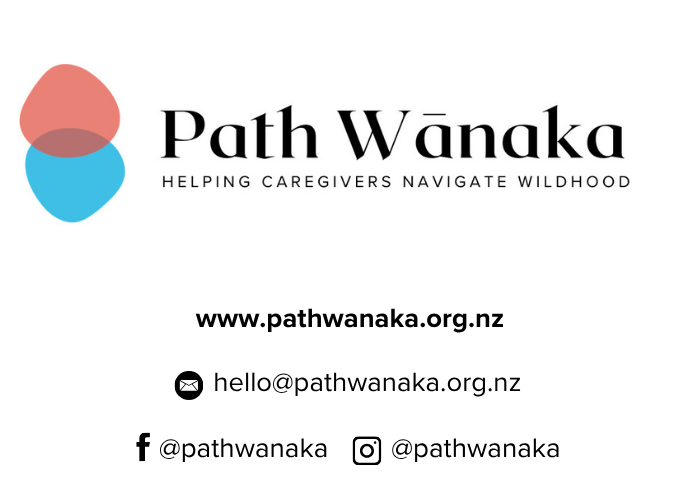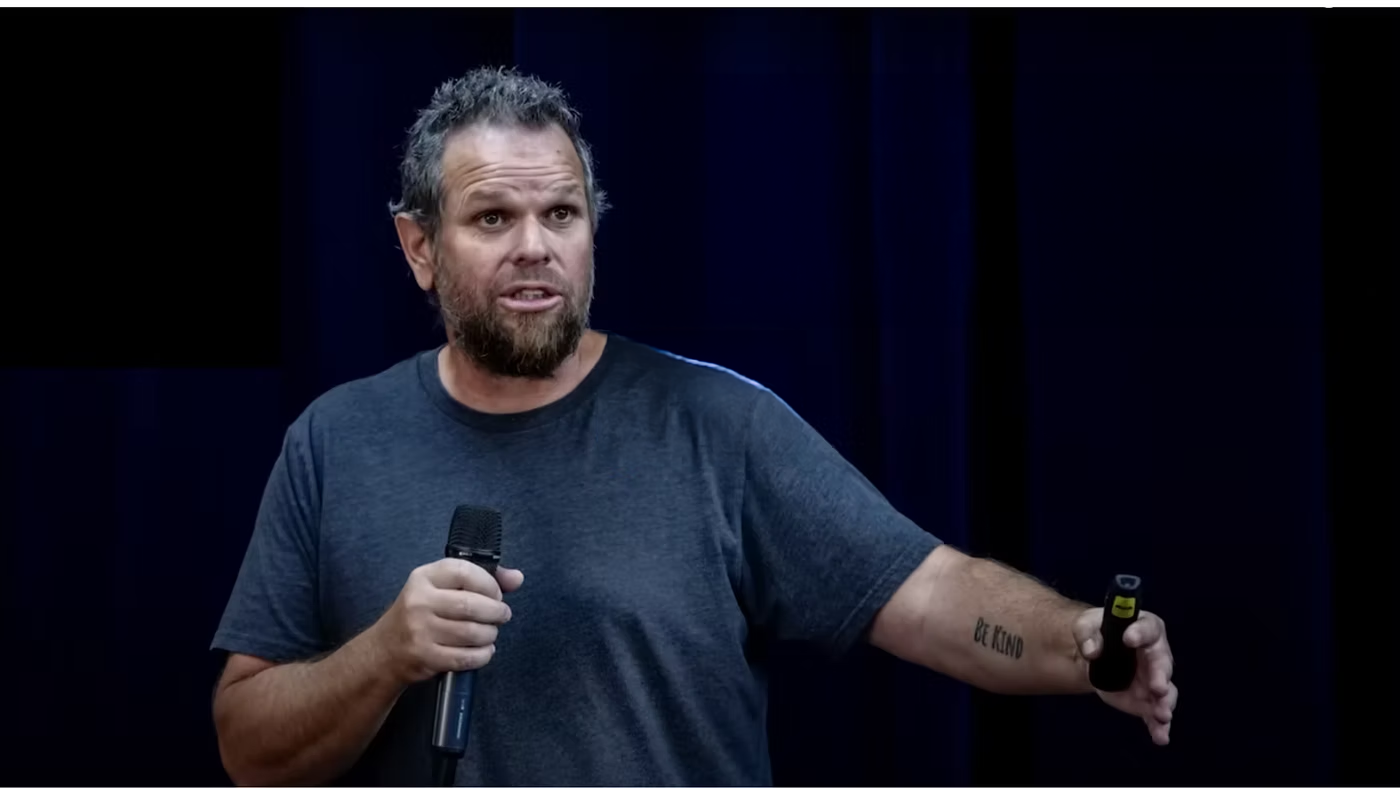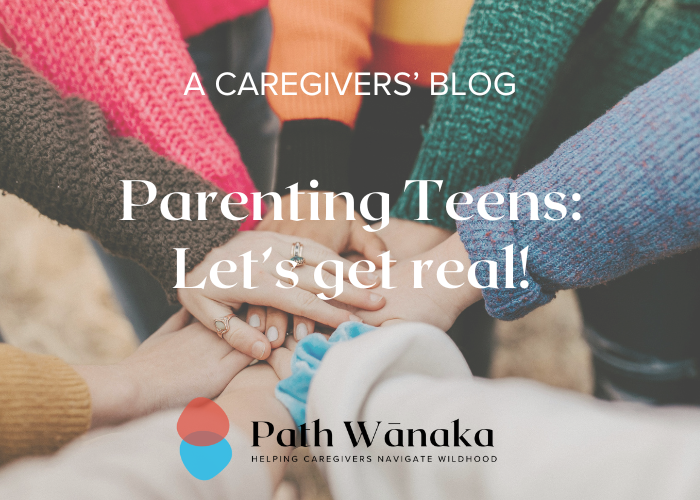When the Storm Passes: What Comes After Childhood Depression - Part 3 (Caregivers' blog)
Path Wānaka
21 August 2025, 8:00 PM

We often hold onto the hope that things will “go back to normal” once the worst of our child’s depression passes. But the truth is — they don’t. They can’t. And actually… that’s not necessarily a bad thing.
Your young person is changed. You are changed. There is no rewinding the tape to before it all started. But in the same way that a profound experience — say, travelling the world or caring for someone you love — shapes a person, so too does living through mental illness.
This chapter is about what happens after. It’s not neat or linear. But it is a place of progress, strength, and, with time, peace.
They’ve Changed. You’ve Changed. That’s Okay.
Depending on the depth and duration of your child’s experience with depression, it may have fundamentally shifted how they see the world and themselves. And let’s be honest — it may have done the same to you.
You might still carry the trauma of witnessing their despair. You may even feel a twinge of jealousy when your friends talk about their kids navigating ordinary problems — the annoying flatmate, the part-time job drama, uni deadlines. You may mourn the version of teenage or young adult life your child didn’t get to have.
But here’s what you get in return: resilience. Insight. Grit. Skills they learned the hard way — that most of their peers haven’t had to develop yet.
When ‘Normal’ Expands, So Does Belonging
In the teenage years, everything is measured — test scores, social circles, university acceptances. It’s a sausage factory of standardisation. And if your child didn’t fit the mould, it may have felt like they were falling behind or left out.
But here’s the beautiful truth: as their peers grow up, the shape of ‘normal’ starts to dissolve. Some leave uni, some never go. Some chase careers, others chase travel. Some fall in love, others feel lost. That uniformity fades. The bubble pops. And suddenly, your child — who once felt on the outside — is part of the wider, wobbly world again.
What made their life feel small at 15 might be what makes them strong at 25.
They’ve learned to anticipate stormy weather and prepare. They’ve learned self-care, mindfulness, and the importance of sleep, food, and connection. These aren’t just coping tools. They’re life tools. Superpowers, really.
You’ve Learned Too
Parents often end up walking a parallel path — learning how to care for themselves, manage anxiety, maintain boundaries, and reconnect with their own lives again. Maybe for the first time in years.
That journey isn’t always clean. In the thick of it, some parents understandably develop coping habits that aren’t so healthy — more wine at night, more arguments behind closed doors, more isolation, or even beginning to mirror the withdrawn or avoidant behaviours of their child. It’s human. It’s common. But it doesn’t need to be the end of the story.
The good news? Just like your young person, you can choose something different. You can step toward healthier habits, seek connection, and reach out for support. Parent groups, therapy, peer spaces — they exist, and they help. Sometimes just hearing “me too” from another parent changes everything.
And here’s the kicker: the advice we give to our struggling young people? It’s the same advice that makes us well. Eat good food. Move your body. Find meaningful connection. Seek support when needed. Take a breath before you react.
What felt like a lonely path is suddenly full of others walking the same way. The umbrella of “normal” has widened — and you’re under it too.
This Isn’t About Blame – But Let’s Be Honest
I’m not here to demonise the systems that measure our young people — schools, universities, sports teams. But once you’re outside of them, they start to look a bit… strange.
Imagine sitting at a bar with friends and being told who “won” their Christmas holidays or who had the most “successful” friendship group. Ridiculous, right?
That’s the world our kids are often raised in. And when you step out of it, you realise: adulthood isn’t about gold stars. It’s about living in a way that feels meaningful to you.
So whether your young person is starting a course, going to therapy, travelling, working, or just taking life one day at a time — they are collecting their version of gold stars. And so are you.
The Transition: From Caregiver to Witness
Here’s the hardest bit: moving on.
Even if your child still struggles — you need to shift how you respond. If you stay locked into the fear you felt during the worst of their depression, you risk reacting to who they were, not who they are now.
You might panic and think, “Oh no, we’re back here again.” But maybe it’s just a dip, not a return. Maybe they bounce back faster. Maybe they use tools you didn’t even notice they picked up. But if you only focus on the fear, you’ll miss the growth.
Instead, celebrate the bounce. Notice their self-care. Let social connection look different (even if it’s online). Gently let go. Yes — that’s terrifying. But shielding them forever means they never get to test their wings. And what’s life without that?
The Final Message
Your child is now the adult and all adults are still kids in disguise, figuring things out.
Here’s what matters now: • Shoulder your baggage with kindness. • Soothe your busy mind with movement or stillness. • Eat to fuel, not punish. • Reach out when you’re not okay. • Ignore the highlights reel of social media.
And most importantly — give yourself some bloody gold stars. For the small things. For the big ones. For not giving up.
Let your young person see you live. That, more than anything, shows them the path forward.
There’s no more official grading system. You get to decide what success looks like now.
You’ve walked through the fire with your child. You’ve grown. So have they. Now… take a breath, step forward, and start living the life you both deserve.
Let the new chapter begin.
This post is the third in our journey. Read the first blog here. The second chapter explores what recovery starts to look like, how the fog begins to lift, and what it means to slowly trust again. Read the second blog here.





